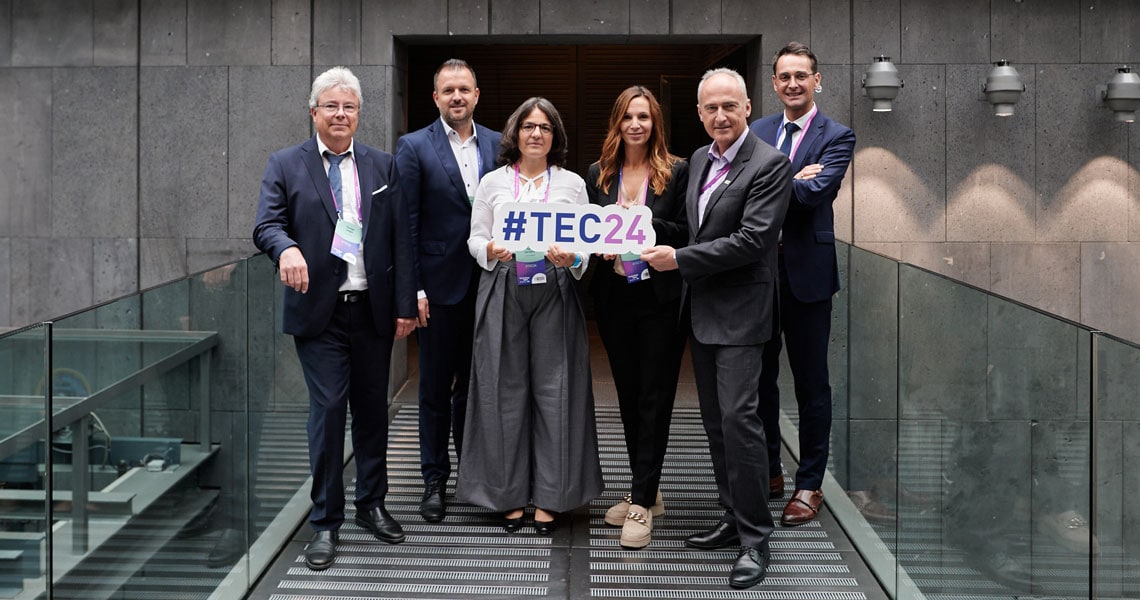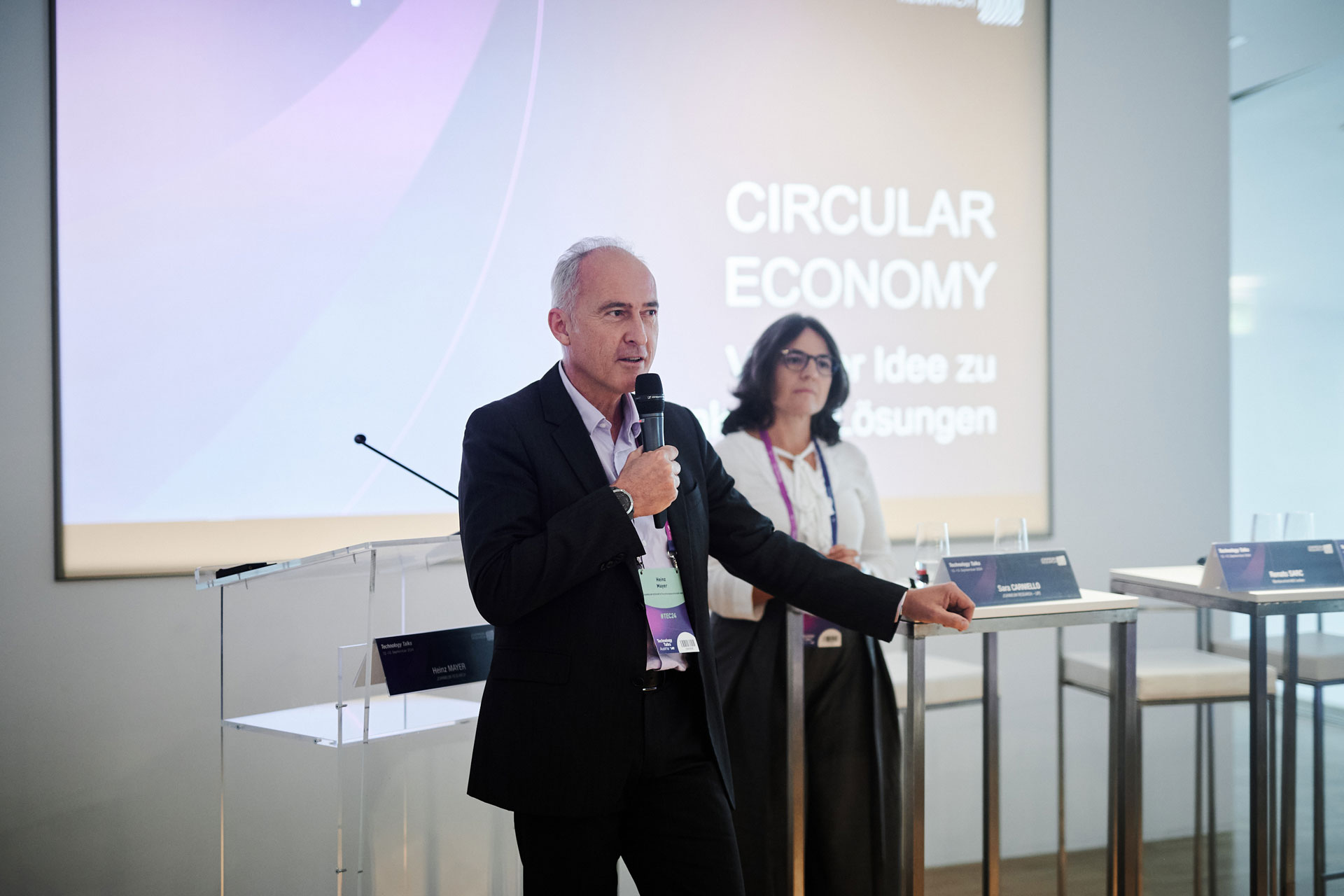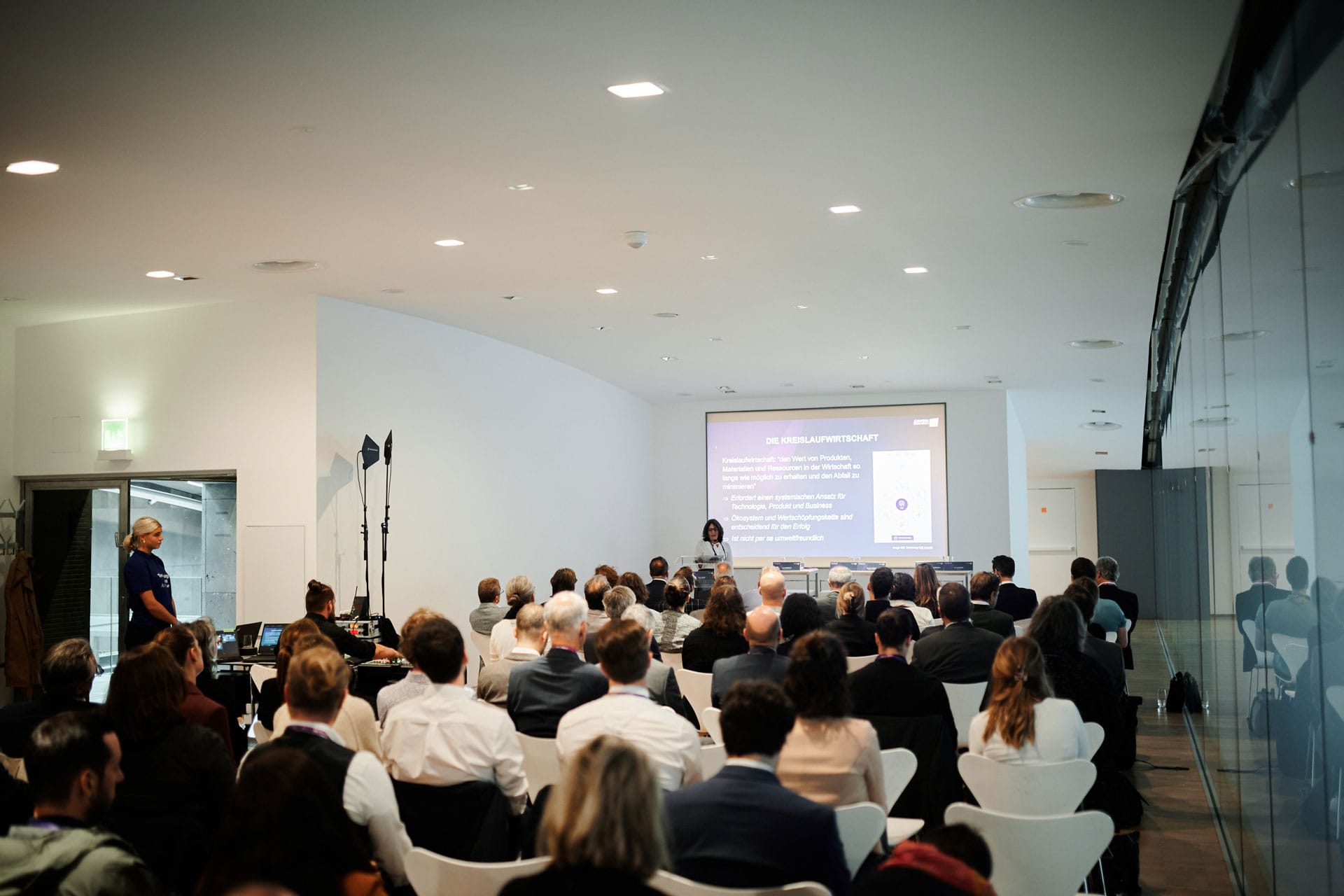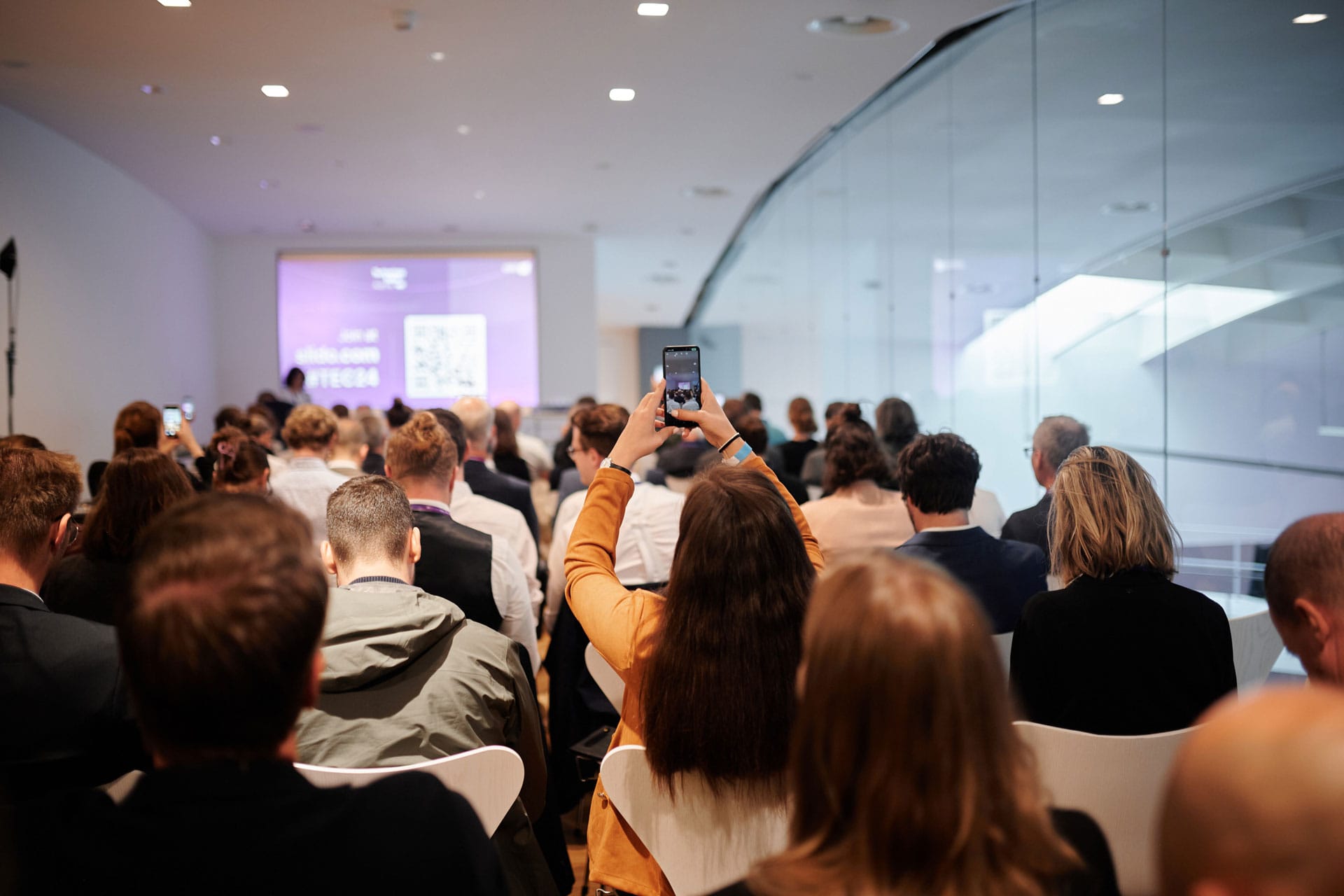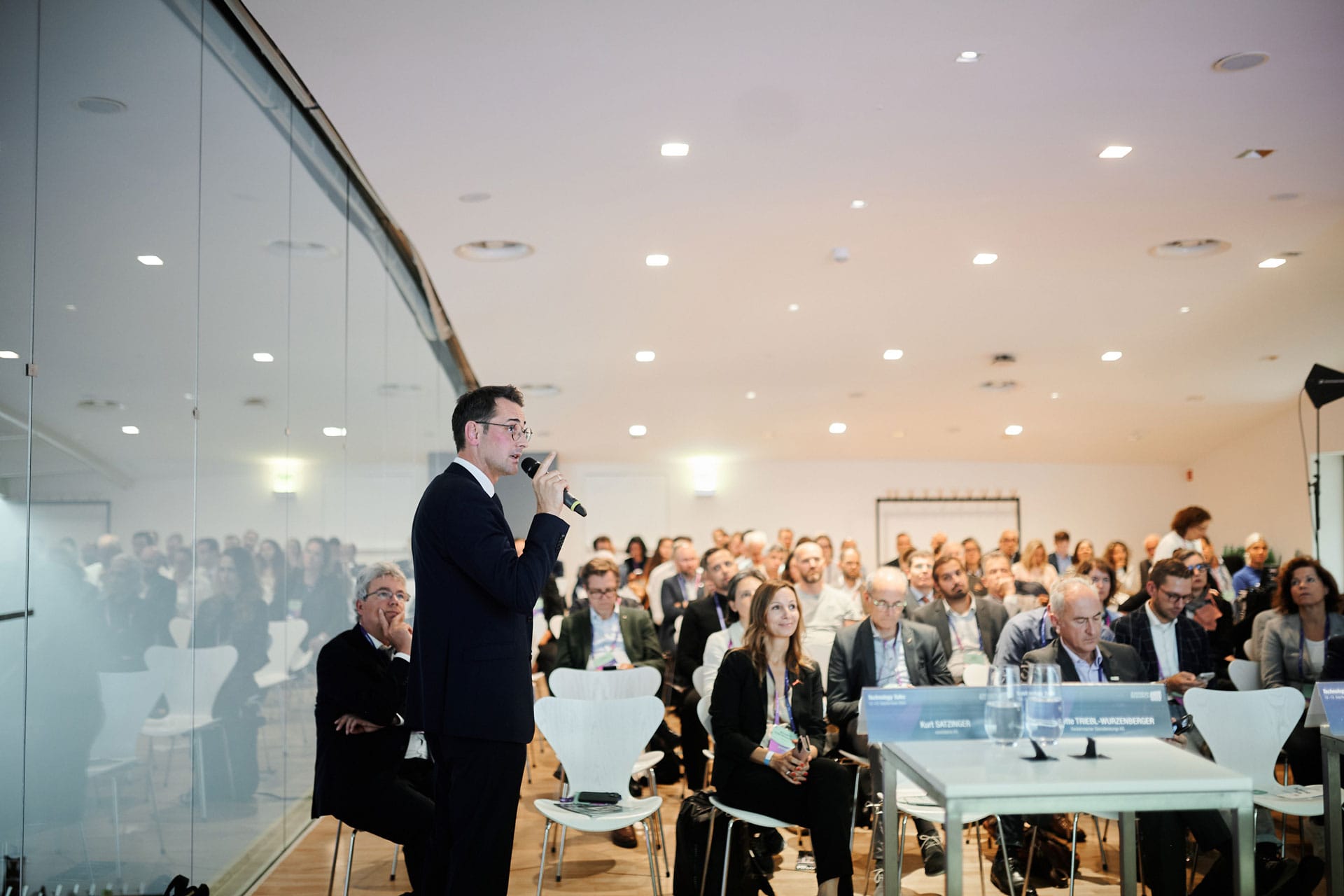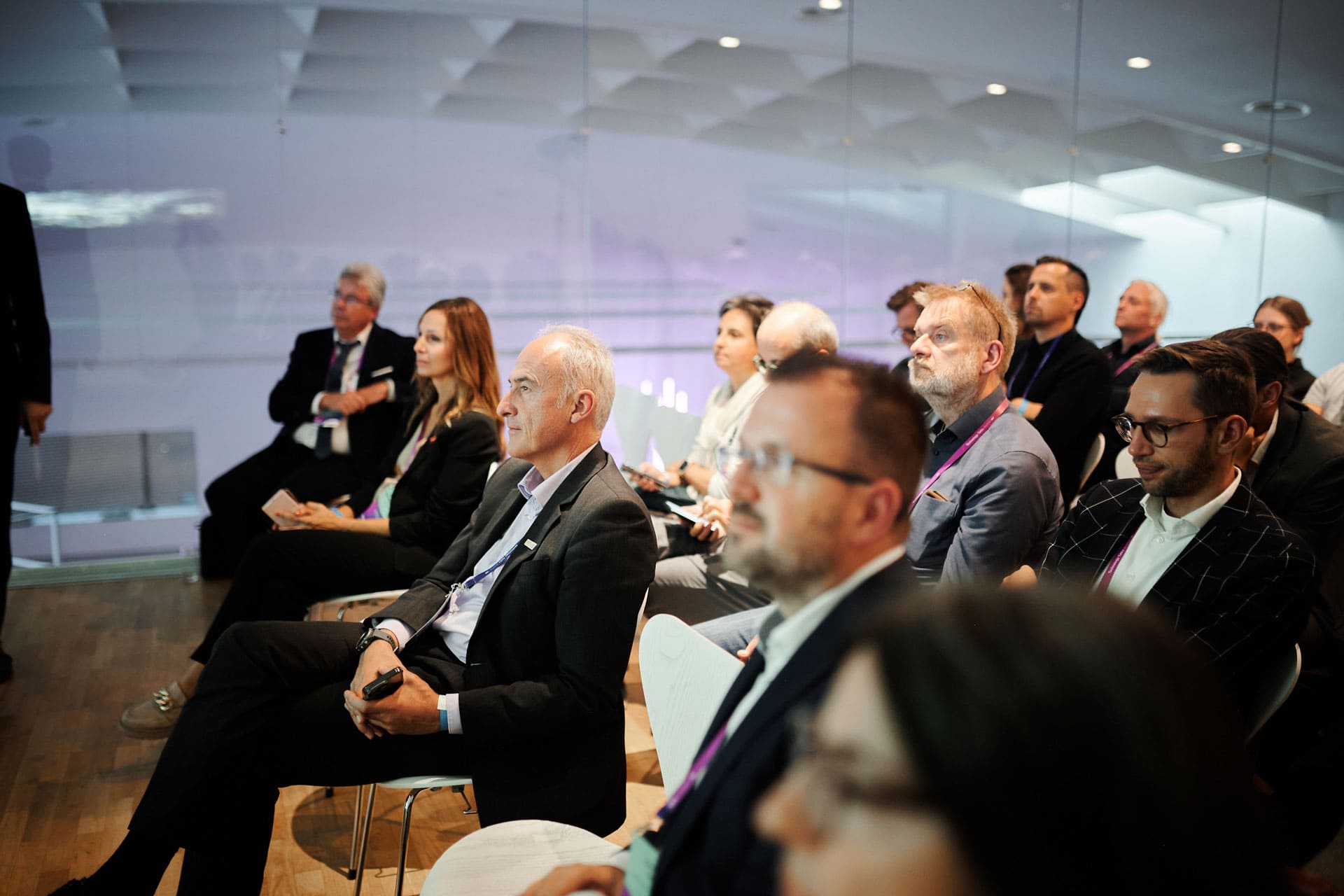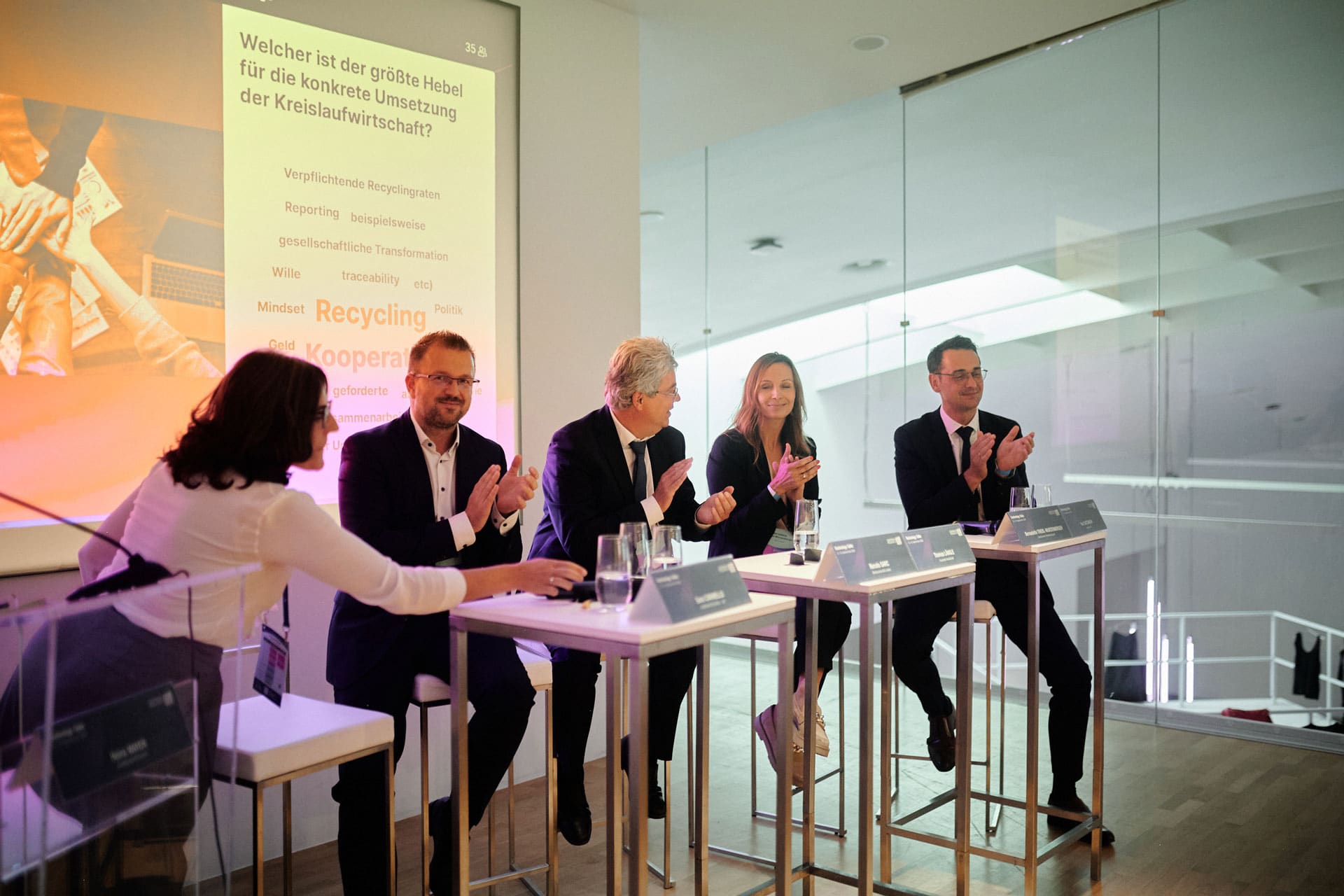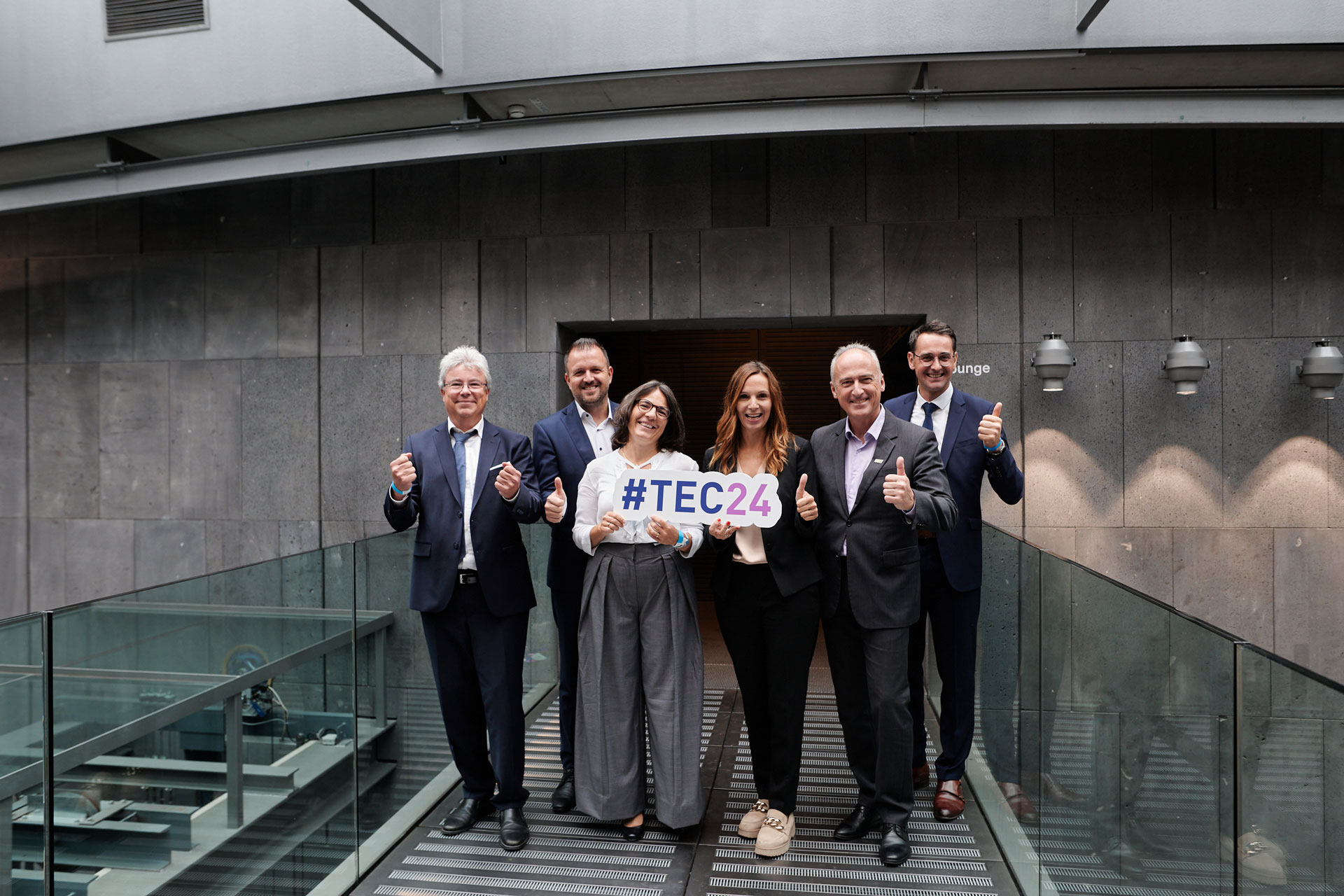Circular Economy – from the idea to concrete solutions was the title of the JOANNEUM RESEARCH workshop at the Austrian Institute of Technology's (AIT) Technology Talks Austria. Around 100 participants took part on 12 September 2024 at the MuseumsQuartier in Vienna.
„Concrete solutions that also work technically and economically on an industrial scale are important", says Sara Carniello, researcher at the Institute LIFE at JOANNEUM RESEARCH and moderator of the session. "And this requires technically skilled people and companies who are prepared to take on the existing challenges and who also see a business case in them." In the keynote speeches, various elements of success, basic and applied research and implementation were highlighted using specific examples.
Science and research
Renato Sarc from the Montanuniversität Leoben provided insights into the research aspect and the role of the university in developing the necessary expertise. Waste management –in particular the sorting of material flows – makes an important contribution to the circular economy, as waste will always be generated. However, waste management is a regulated industry and politicians are called upon to create appropriate rules that promote reuse and recycling, the scientist said.
Thomas Längle from the Fraunhofer Gesellschaft in Karlsruhe argued in favour of closing the implementation gap. This would be possible through intensive cooperation between research, industry and politics in technological and economical terms. He illustrated this with reference to Fraunhofer projects in the field of sorting waste materials using sensor technology and artificial intelligence.
Business and industry
Bernadette Triebl-Wurzenberger from Saubermacher discussed various factors on which the success of circular models depends: for example, the recyclability of products, incentives and steering measures (taxes, subsidies, collection quotas, landfill bans, etc.), legal framework conditions or partnerships in the area of R&D, but also transparency, controls and sanctions. She provided insights into a gypsum-to-gypsum recycling plant (gypsum is 100 per cent recyclable), which Saubermacher will operate together with partner companies. In addition to technical development, this also required the establishment of a new value chain.
Kurt Satzinger from Voestalpine AG presented the company's plan for the transformation of steel production, Greentec Steel. The path leads from conventional blast furnaces powered by fossil-based energy to hybrid concepts with electric arc furnaces and hydrogen-based steel production. The aim is to reduce greenhouse gas emissions by 50 per cent by 2035 (compared to 2019) and ultimately achieve the net zero target by 2050. The first major transformation step has been achieved with the electric arc furnaces in Linz and Donawitz, which would save 5 per cent of total greenhouse gas emissions in Austria. This corresponds to the emissions of around 2 million cars per year (at 125g/km and 15,000 kilometres driven).
Public opinion poll
In an audience survey at the end of the session, 100 per cent of the participants agreed that the circular economy opens up new opportunities for European innovation and expertise. The question of whether it would help the European economy in the long term that the circular economy in Europe is based on investment as well as requirements and regulations was answered overwhelmingly in the "Yes" category. In general, recycling and cooperation were seen as the greatest levers for the concrete implementation of the circular economy.
"In summary, it can be said that the potential of the circular economy for sustainable production, but also for innovation and competitiveness in general, has been recognised and is being put into practice by many companies," summarised moderator Carniello. "There was also broad agreement that cooperation with partners, but also political control – both financially and through regulations – are essential for the success of the circular economy."
The speakers
Prof. Dr.-Ing. Thomas LÄNGLE, Fraunhofer Gesellschaft, Karlsruhe
Mag.a Bernadette TRIEBL-WURZENBERGER, Saubermacher Dienstleistungs AG
Dr. Kurt SATZINGER, voestalpine AG
Ass. Prof. DI Dr. Renato SARC, Montanuniversität Leoben
Moderation: Dott.a Sara CARNIELLO, MBA, JOANNEUM RESEARCH

